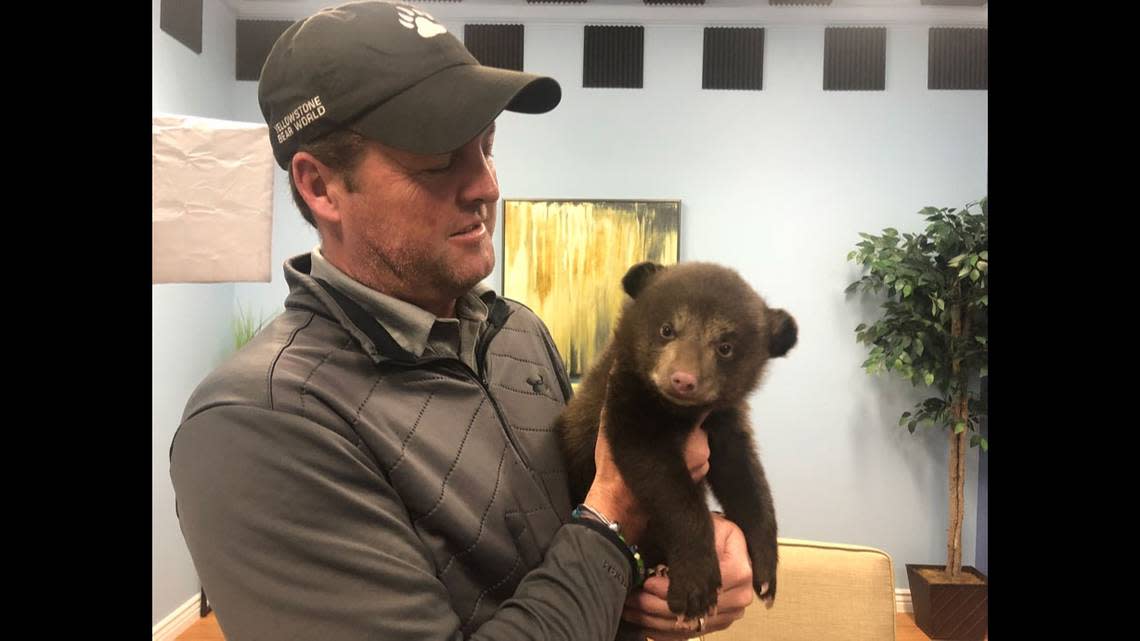Bear World doesn’t want regulators looking over its shoulder. Fish and Game should be | Opinion

If you break the law, you are met with penalties.
That is — unless you have enough buddies in the Idaho Legislature. Then the rules have a way of changing to suit your interests.
A clear example of this pattern is Senate Bill 1084, which has already cleared the Idaho Senate in a nearly unanimous vote. It would exempt facilities with a specific class of license from the U.S. Department of Agriculture from regulation by Idaho Fish and Game.
Yellowstone Bear World, a drive-through wildlife park near Rexburg not affiliated with Yellowstone National Park, is one of only a handful of facilities in the state that holds such a license, many of the rest being municipal zoos. Bear World appears to be the only interest pushing for the bill. President Courtney Ferguson did not return phone calls seeking comment.
You can see why Bear World would want out of Idaho Fish and Game regulations since it has been breaking them for years.
Don’t feed the bears
According to a 2022 notice of violation from Idaho Fish and Game, Bear World failed to provide annual veterinary records regarding the health of the animals it’s keeping, failed to provide records of animal deaths and failed to provide documentation regarding animals being transported or sold.
The notice also points out that it’s a violation of state rules to have the public feed wild animals — though a main selling point for Bear World has long been the opportunity to bottle-feed a bear cub for $75.
This raises an important question: Assuming you can only feed a grizzly bear cub for about 6 months before it is liable to tear a tourist’s face off, and factoring in the need to keep a constant supply of cubs for the premium bottle-feeding attraction, what happens to all the extra cubs?
A series of outstanding investigations by Post Register reporter Johnathan Hogan in 2021 and 2022 provides answers.
Cubs born in the facility, Hogan reported, are generally separated from their mothers at about one or two months old in order to make them suitable for bottle feeding — far earlier than many bear experts think is humane.
As Hogan noted, Bear World told the public in a 2017 Facebook post: “The cubs here were born in, and will remain in, our park for the duration of their lives.”
But that was far from true.
As Hogan reported, official transfer records show nearly 100 cubs were sold to other facilities between 2009 and 2021. That includes four black bear cubs sold to a facility owned by so-called “Tiger King” Joe Exotic — who was later convicted of 17 counts of animal abuse for practices in his facilities.
Why does the Legislature not want Idaho Fish and Game to have any records of these transactions?
Escapes and worker safety violations
Idaho doesn’t have the best record with captive wildlife facilities. Ask anyone who lived in the area around Lava Hot Springs in 1995, who one day learned suddenly that they had to be on the lookout for 15 lions that had escaped from the Ligertown facility and were now stalking the plains of southeastern Idaho.
Bear World has not been immune from escapes.
Statesman reporter Nicole Blanchard noted that a wolf recently escaped from Yellowstone Bear World.
Former Idaho Fish and Game grizzly expert Gregg Losinksi — a man with unparalleled expertise on eastern Idaho’s grizzly population — told Hogan that another prior incident, in which a grizzly sow escaped onto the adjacent highway, was never reported to Fish and Game. Losinski learned of the incident by reading in a book that the escaped bear was lured back into the park using a trail of marshmallows.
And it seems Bear World misrepresented the status of investigations into its worker safety record to lawmakers considering the bill.
As Idaho Statesman reporter Nicole Blanchard noted: “(Bear World’s lobbyist) told lawmakers last month that ‘only the Idaho Department of Fish and Game found merit in (PETA’s) complaints.’ But a week earlier, OSHA cited Yellowstone Bear World for three serious workplace safety violations and fined the business nearly $9,000.”
With all this compelling evidence that Bear World deserves heavy regulatory scrutiny, it’s a very strange time to be more or less eliminating state regulatory oversight of private wild animal exhibitions.
There’s no evidence that risks to the public or animal welfare or workers have gone away.
But the regulations might.
“This bill will allow Yellowstone Bear World to run its business without constantly looking over its shoulder,” Bear World’s lobbyist told the Senate Resources Committee.
Well, with a record like this, maybe Bear World should be looking over its shoulder.
Bryan Clark is an opinion writer for the Idaho Statesman based in eastern Idaho.

